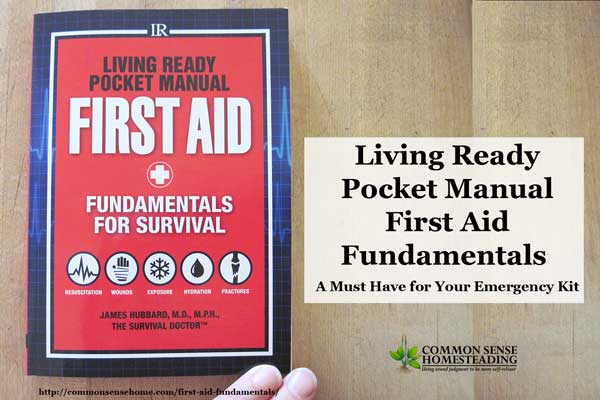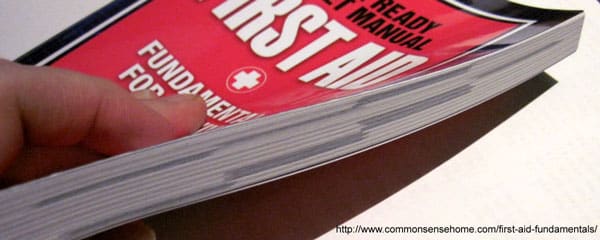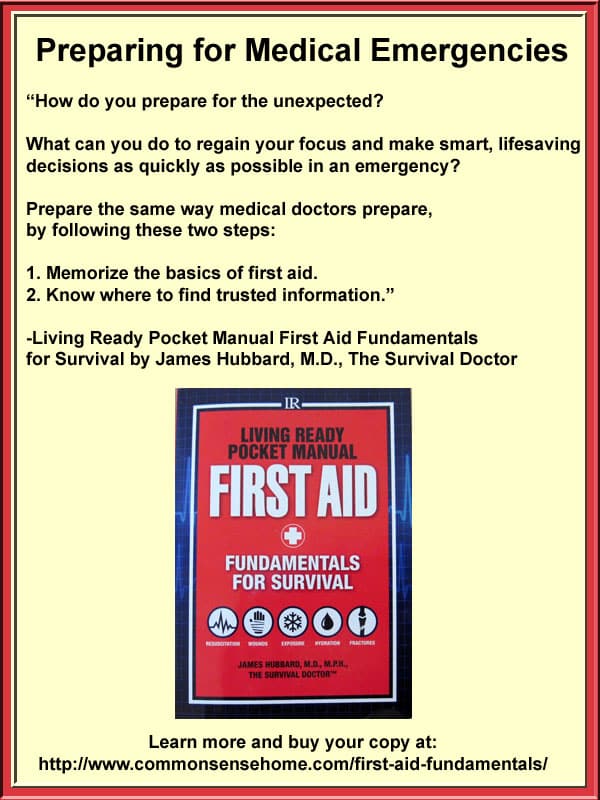Living Ready Pocket Manual – First Aid Fundamentals for Survival
This post may contain affiliate links. Read my full disclosure here.
“Living Ready Pocket Manual – First Aid Fundamentals for Survival” is a new book by James Hubbard, M.D., M.P.H., aka The Survival Doctor. Dr. Hubbard has come out with a brand new, extremely practical addition to every home library and preparedness kit.

Table of contents
What’s in “Living Ready Pocket Manual – First Aid Fundamentals for Survival”?
The book contains 7 chapters, plus an index and introduction. Chapters include:
- First Aid Supplies
- Resuscitation
- Water and Hydration
- Exposure: Hyperthermia and Hypothermia
- Skin Wounds
- Reactions: Anaphylaxis, Skin Irritations and Poisoning
- Bones and Joints
The edge of of the book has color banding to make the individual chapters easier to find quickly, which I thought was a nice touch.

Each chapter is subdivided into more specific content areas. For instance, Exposure: Hyperthermia and Hypothermia (chapter 4), is divided into:
- Dress for Survival
- Hyperthermia (Overheating)
- Muscle Cramping
- Heat Exhaustion
- Heatstroke
- Hypothermia
- How to Treat Hypothermia
- Frostbite
Would you like to save this?
Instructions are clear, concise and detailed. Illustrations and bullet lists help with quick first aid reference. Dr. Hubbard covers everything from minor backyard bumps and scrapes to full blown disaster response. There are tips for improvising emergency solutions with common household items, such as water filtration with a clean cotton t-shirt or improvising a brace for a broken bone with thick paper or a stick.
Are You Prepared for Medical Emergencies?
Note for the squeamish – the book contains detailed wound/injury descriptions. I have some experience with people and animal injuries and insides, and I could clearly picture the injuries being described. My stomach did a few flip flops here and there while reading. That said, better to familiarize yourself with this information before you need it so you can remain clear-headed when you do need it.
This book would be great to pair up with First Aid Training from the Red Cross or other organization. At under $10 (retail price is $9.61), you can afford to keep one at home, in the glove compartment or in your 72 hour bag or medical kit.

Related Articles

This article is by Laurie Neverman. She has a BS in Math/Physics and MS in Mechanical Engineering with an emphasis in renewable energy. Laurie and her family live in a “concrete bunker” (ICF home) with a permaculture food forest, greenhouses, and three types of solar. They “walk the talk” of preparedness by living a more self-reliant lifestyle.
